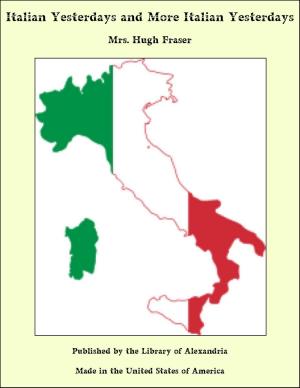Old Europe's Suicide: The Building of a Pyramid of Errors
Nonfiction, Religion & Spirituality, New Age, History, Fiction & Literature| Author: | Christopher Birdwood Thomson | ISBN: | 9781465611178 |
| Publisher: | Library of Alexandria | Publication: | March 8, 2015 |
| Imprint: | Language: | English |
| Author: | Christopher Birdwood Thomson |
| ISBN: | 9781465611178 |
| Publisher: | Library of Alexandria |
| Publication: | March 8, 2015 |
| Imprint: | |
| Language: | English |
“When the snows melt there will be war in the Balkans,” had become an habitual formula in the Foreign Offices of Europe during the first decade of the twentieth century. Statesmen and diplomats found comfort in this prophecy on their return from cures at different Continental spas, because, the season being autumn, the snow had still to fall, and would not melt for at least six months. This annual breathing space was welcome after the anxieties of spring and summer; the inevitable war could be discussed calmly and dispassionately, preparations for its conduct could be made methodically, and brave words could be bandied freely in autumn in the Balkans. Only an imminent danger inspires fear; hope has no time limit, the most unimaginative person can hope for the impossible twenty years ahead. Without regard either for prophecies or the near approach of winter, Bulgaria, Servia, Greece and Montenegro declared war on Turkey at the beginning of October, 1912. The Balkan Bloc had been formed, and did not include Rumania, a land where plenty had need of peace; King Charles was resolutely opposed to participation in the war, he disdained a mere Balkan alliance as unworthy of the “Sentinel of the Near East.” Bukarest had, for the moment anyhow, lost interest; my work there was completed, and a telegram from London instructed me to proceed to Belgrade. The trains via Budapest being overcrowded, I decided on the Danube route, and left by the night train for Orsova, in company with a number of journalists and business men from all parts of Rumania. We reached the port of the Iron Gate before dawn, and found a Hungarian steamer waiting; soon after daybreak we were heading up stream. Behind us lay the Iron Gate, its gloom as yet unconquered by the sunrise; on our left the mountains of North-Eastern Servia rose like a rampart; on our right the foothills of the Carpathians terminated abruptly at the river’s edge; in front the Danube shimmered with soft and ever-changing lights; a stillness reigned which no one cared to break, even the crew spoke low, like pious travellers before a shrine. War’s alarms seemed infinitely distant from those glistening waters set in an amphitheatre of hills. “How can man, being happy, still keep his happy hour?” The pageant of dawn and river and mountain faded as the sun rose higher; dim outlines became hard and sharp; the Iron Gate, surmounted by eddying wisps of mist, looked like a giant cauldron. The pass broadened with our westward progress revealing the plain of Southern Hungary, low hills replaced the mountains on the Servian bank. A bell rang as we stopped at a small river port, it announced breakfast and reminded us, incidentally, that stuffy smells are inseparable from human activities, even on the Danube, and within sight of the blue mountains of Transylvania.
“When the snows melt there will be war in the Balkans,” had become an habitual formula in the Foreign Offices of Europe during the first decade of the twentieth century. Statesmen and diplomats found comfort in this prophecy on their return from cures at different Continental spas, because, the season being autumn, the snow had still to fall, and would not melt for at least six months. This annual breathing space was welcome after the anxieties of spring and summer; the inevitable war could be discussed calmly and dispassionately, preparations for its conduct could be made methodically, and brave words could be bandied freely in autumn in the Balkans. Only an imminent danger inspires fear; hope has no time limit, the most unimaginative person can hope for the impossible twenty years ahead. Without regard either for prophecies or the near approach of winter, Bulgaria, Servia, Greece and Montenegro declared war on Turkey at the beginning of October, 1912. The Balkan Bloc had been formed, and did not include Rumania, a land where plenty had need of peace; King Charles was resolutely opposed to participation in the war, he disdained a mere Balkan alliance as unworthy of the “Sentinel of the Near East.” Bukarest had, for the moment anyhow, lost interest; my work there was completed, and a telegram from London instructed me to proceed to Belgrade. The trains via Budapest being overcrowded, I decided on the Danube route, and left by the night train for Orsova, in company with a number of journalists and business men from all parts of Rumania. We reached the port of the Iron Gate before dawn, and found a Hungarian steamer waiting; soon after daybreak we were heading up stream. Behind us lay the Iron Gate, its gloom as yet unconquered by the sunrise; on our left the mountains of North-Eastern Servia rose like a rampart; on our right the foothills of the Carpathians terminated abruptly at the river’s edge; in front the Danube shimmered with soft and ever-changing lights; a stillness reigned which no one cared to break, even the crew spoke low, like pious travellers before a shrine. War’s alarms seemed infinitely distant from those glistening waters set in an amphitheatre of hills. “How can man, being happy, still keep his happy hour?” The pageant of dawn and river and mountain faded as the sun rose higher; dim outlines became hard and sharp; the Iron Gate, surmounted by eddying wisps of mist, looked like a giant cauldron. The pass broadened with our westward progress revealing the plain of Southern Hungary, low hills replaced the mountains on the Servian bank. A bell rang as we stopped at a small river port, it announced breakfast and reminded us, incidentally, that stuffy smells are inseparable from human activities, even on the Danube, and within sight of the blue mountains of Transylvania.















